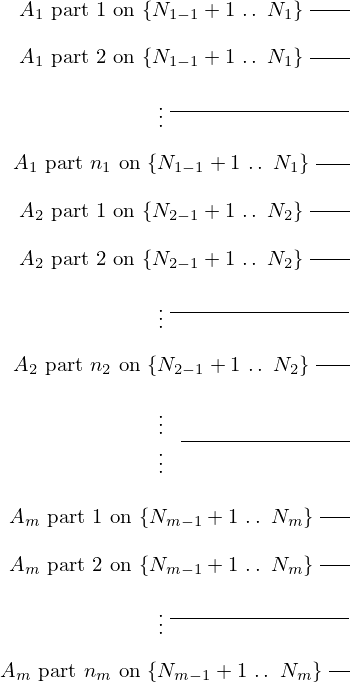
Expression of type Qcircuit¶
from the theory of proveit.physics.quantum.circuits¶
In [1]:
import proveit
# Automation is not needed when building an expression:
proveit.defaults.automation = False # This will speed things up.
proveit.defaults.inline_pngs = False # Makes files smaller.
%load_expr # Load the stored expression as 'stored_expr'
# import Expression classes needed to build the expression
from proveit import A, ExprRange, IndexedVar, N, Variable, VertExprArray, m, n
from proveit.numbers import Add, Interval, one, subtract
from proveit.physics.quantum.circuits import Input, MultiQubitElem, Qcircuit
In [2]:
# build up the expression from sub-expressions
sub_expr1 = Variable("_b", latex_format = r"{_{-}b}")
sub_expr2 = Variable("_a", latex_format = r"{_{-}a}")
expr = Qcircuit(vert_expr_array = VertExprArray([ExprRange(sub_expr1, ExprRange(sub_expr2, MultiQubitElem(element = Input(state = IndexedVar(A, sub_expr1), part = sub_expr2), targets = Interval(Add(IndexedVar(N, subtract(sub_expr1, one)), one), IndexedVar(N, sub_expr1))), one, IndexedVar(n, sub_expr1)).with_wrapping_at(2,6), one, m)]))
In [3]:
# check that the built expression is the same as the stored expression
assert expr == stored_expr
assert expr._style_id == stored_expr._style_id
print("Passed sanity check: expr matches stored_expr")
In [4]:
# Show the LaTeX representation of the expression for convenience if you need it.
print(stored_expr.latex())
In [5]:
stored_expr.style_options()
In [6]:
# display the expression information
stored_expr.expr_info()






































